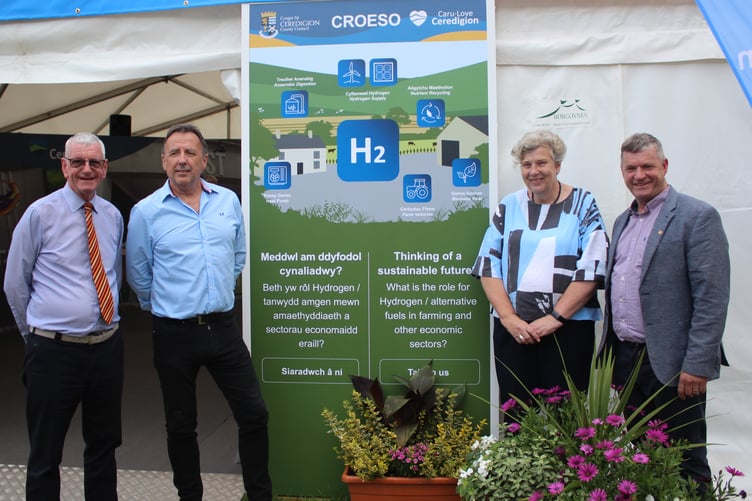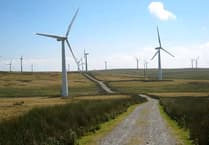HOW hydrogen could power the future of agriculture was discussed by a panel of experts at a Royal Welsh Show forum hosted by Ceredigion County Council.
Council leader, Cllr Bryan Davies introduced a panel of experts at the Royal Welsh Agricultural Show on Tuesday 23 July, to discuss the current opportunities and options around the future use of hydrogen as a fuel in agriculture.
Agriculture, as well as other sectors of the economy in Ceredigion are in the process of transitioning away from using fossil fuels to power their businesses but there remains a number of challenges in order to be able to complete that journey for rural businesses.
As farm businesses will have to replace diesel as a key source of fuel for tractors on farm in the future, equipment manufacturers are already developing internal combustion engines that can be powered using alternative fuels, including bio-gas and also Hydrogen. In an era where agriculture, as well as other industries, move towards decarbonisation, the event showcased alternative sources of fuels that could allow the industry to embrace a greener future.
The panel consisted of Huw Davies, of Renewable Developments Wales, Dr. Joanna Oliver, Head of Technology at Haush Energy and Richard Winterbourne, Chief Executive Officer Haush Energy. All of whom have vast experience working with green energy, including wind, pyrolysis, and more recently, Hydrogen and the role Green Hydrogen can play within powering our rural economy.
There was an opportunity to ask the experts questions at the end of the event.
Bryan Davies, Leader of Ceredigion County Council, said: We aim to embrace hydrogen technology within Ceredigion, which has the potential benefits to the rural economy of Ceredigion and to power a wide array of agricultural equipment, from harvesters to irrigation systems and greenhouses and our internal fleet of vehicles within Ceredigion. By doing so, we can enhance energy efficiency, reduce greenhouse gas emissions, and safeguard the environment for our future generations. Yet another example of Ceredigion’s innovative approach to driving the net carbon zero agenda.”
To find out more visit: www.ceredigion.gov.uk/resident/housing/financial-assistance/energy-efficiency-schemes/



.png?width=209&height=140&crop=209:145,smart&quality=75)

Comments
This article has no comments yet. Be the first to leave a comment.